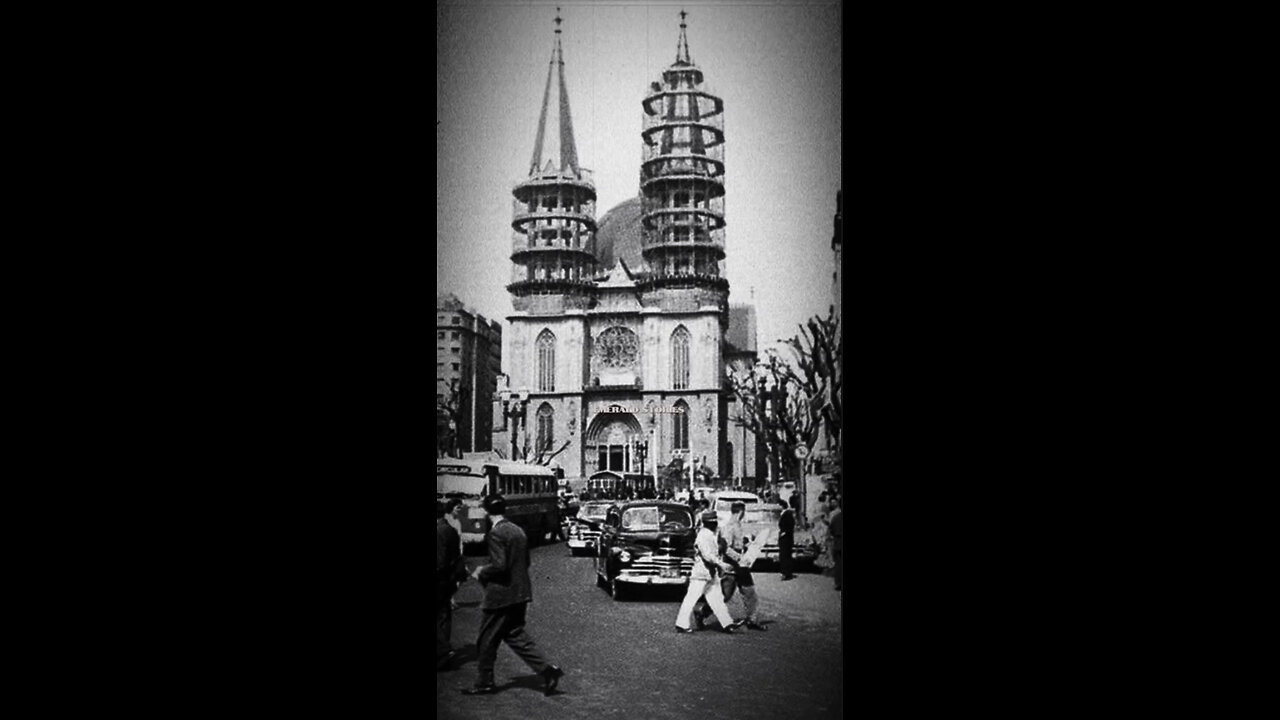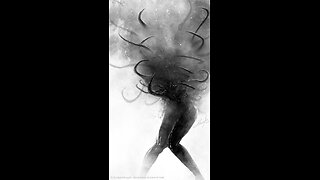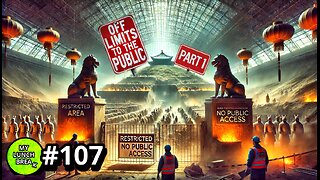Premium Only Content

Unveiling the Forgotten Civilization: The Enigma of Tartaria and the Hidden Timeline
History, as we know it, may not be the whole story. Around the world, strikingly similar architectural features appear across continents—Europe, Asia, and the Americas. These structures, often attributed to disparate cultures and periods, raise perplexing questions about the accuracy of our historical timeline. Were they all built by the same architect? Did a single, advanced civilization once span the globe?
Welcome to the mystery of Tartaria, a civilization erased from mainstream history and shrouded in a veil of intrigue. As we piece together fragments of this forgotten past, the revelations may redefine everything we thought we knew about human history.
The Enigma of Advanced Architecture
Look closely at the world’s most iconic structures—the intricate designs of European cathedrals, the formidable Great Wall of China, and the striking domes of Moscow. How did civilizations supposedly separated by vast distances and time share such advanced engineering techniques and architectural similarities? Even more puzzling is the suggestion that these methods were far too sophisticated for the historical periods in which they were supposedly constructed.
Some propose an audacious theory: that many of these structures were not independent creations of isolated cultures but the unified work of a singular, advanced empire—Tartaria.
Tartaria: A Civilization Erased
Tartaria, a supposed empire once sprawling across Eurasia and beyond, is said to have been a society with knowledge and technology far exceeding our own. While dismissed by mainstream academia as a myth, the idea of Tartaria gains traction among researchers who point to anomalies in historical maps, architectural styles, and engineering feats. Could this lost civilization have been the true architect of many of our world’s most enduring structures?
The Great Wall of China
A striking example lies in the Great Wall of China. Some claim that sections of the wall, particularly those built with brick and stone, align more with Tartarian construction techniques than traditional Chinese methods. The theory suggests the wall was not built to keep invaders out of China, but rather to fortify Tartaria’s borders—flipping conventional historical narratives on their head.
A Fabricated Timeline?
One of the most unsettling aspects of this theory involves the idea that our historical timeline has been manipulated. What if the dates etched into the façades of ancient buildings are not dates at all, but something else entirely? Some propose that the “1” in dates like “1750” could actually represent an “I” for “Iesus” (Jesus) or an abbreviation for a different epoch entirely. If true, this could mean our historical timeline is off by at least 1,000 years.
The implications of such a miscalculation are staggering. A deliberate restructuring of history could have erased the memory of Tartaria, along with its technological and cultural contributions, leaving us with a fragmented and distorted narrative of human progress.
The World’s Fairs: A Cover-Up of Epic Proportions
The theory takes an even darker turn when examining the World’s Fairs of the late 19th and early 20th centuries. These grand exhibitions showcased massive, ornate structures—buildings of such scale and intricacy that their alleged “temporary” nature seems implausible. Yet, following the fairs, many of these marvels were inexplicably destroyed, often under the guise of demolition.
• The 1893 Chicago World’s Fair featured the “White City,” a sprawling complex of monumental buildings. Why invest enormous resources into creating structures only to tear them down days later?
• San Francisco’s 1915 Panama-Pacific Exposition saw similarly grand architecture reduced to rubble.
Some researchers argue these fairs served as a cover-up, erasing evidence of Tartaria’s advanced civilization and rewriting history to fit a new, controlled narrative.
A Global Civilization: Ties to Ancient Egypt
Intriguingly, Tartaria’s alleged roots are often linked to ancient Egypt. The architectural parallels between Tartarian designs and Egyptian monuments suggest a shared knowledge base. Consider the obelisks, domes, and intricate geometric alignments—hallmarks of advanced engineering and cosmology.
The theory proposes that Tartaria wasn’t an isolated empire but a continuation of ancient global civilizations, unified by a deep understanding of natural frequencies, energy, and technology. This shared heritage may explain the uncanny similarities between structures spanning continents and millennia.
Implications for the Present
If Tartaria was indeed real, its erasure raises critical questions:
• Why was it hidden? Was the civilization too disruptive to narratives of linear progress and centralized power?
• What technology was lost? Could Tartarian knowledge of energy and construction transform our world today?
• Who benefits from this distortion? Erasing Tartaria might serve to consolidate control over history, resources, and human potential.
A Call to Reexamine History
The mystery of Tartaria challenges us to question the official historical narrative. While some aspects of the theory remain speculative, the anomalies in architecture, maps, and historical records demand deeper investigation. Could we be living in a timeline deliberately constructed to obscure the truth of our shared past?
Perhaps the story of Tartaria is not just about a lost civilization but about the human drive to uncover hidden knowledge. As we connect the dots, we may find that history, like architecture, is built layer by layer. What lies beneath could change everything.
The question remains: Is our history set in stone, or is it waiting to be rewritten?
-
 2:54
2:54
FragmentsOfTruth
2 days agoThe Miasma Mystery: Fog, Disease, and Historical Beliefs
1501 -
 19:57
19:57
BlackDiamondGunsandGear
3 days agoIS 22LR ENOUGH?
13 -
 1:59:47
1:59:47
Anthony Rogers
15 hours agoLIVE Comedy @ Cusumano's Pizza (Upstairs)
196 -
 5:02:46
5:02:46
MoFio23!
13 hours agoNintendo Switch It UP Saturdays with The Fellas: LIVE - Episode #1
69.3K13 -
 4:26:49
4:26:49
BLoobsGaming
12 hours agoCan I get an Enhance Crystal Weapon Seed please!? MORE Corrupted Gauntlet
126K42 -
 7:35:05
7:35:05
BSparksGaming
1 day agoDynamic Duo! Marvel Rivals w/ Chili XDD
79.6K -
 7:00:42
7:00:42
NellieBean
15 hours ago🔴 LIVE - trying some COD maybe Pals later
81K1 -
 1:47:46
1:47:46
SpartakusLIVE
13 hours agoThe Master RIZZLER has entered the building, the 95% REJOICE
35.4K3 -
 29:53
29:53
MYLUNCHBREAK CHANNEL PAGE
1 day agoOff Limits to the Public - Pt 1
97.5K175 -
 16:03
16:03
Tundra Tactical
15 hours ago $20.11 earnedNew Age Gun Fudds
149K20